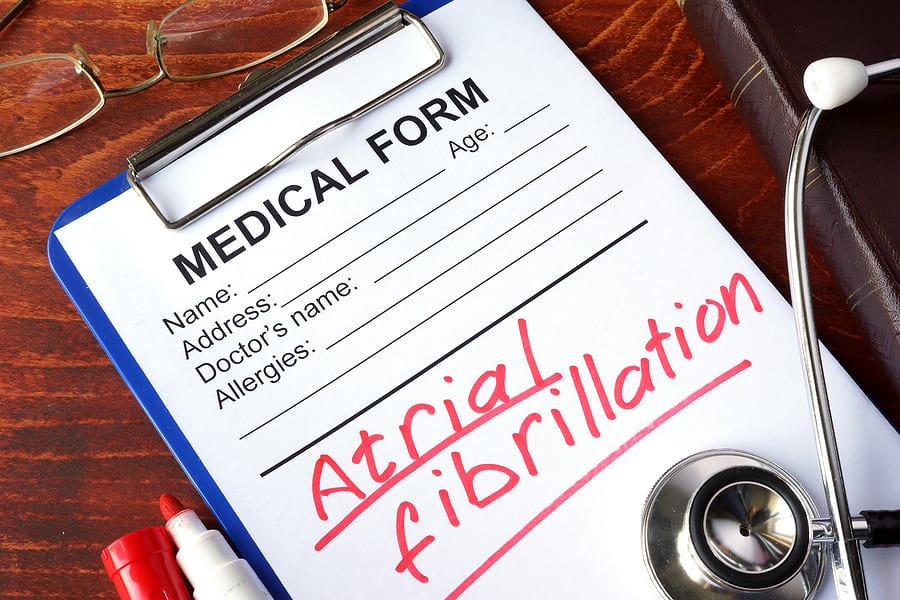Atrial fibrillation, otherwise known as AFib, is a heart condition where an irregular or quivering heartbeat occurs. This can lead to blood clots, heart failure, stroke, and other complications. This can be a serious medical issue that requires immediate treatment. It is more common in older adults and elderly individuals.
What is AFib?
Generally, your heart will contract and relax rhythmically to pump blood throughout the body. During atrial fibrillation, the atria of the heart (the upper chambers), beat irregularly. This weakens the effectiveness of the beat that moves blood. Untreated, AFib can increase the risk of heart-related death to about double. Roughly 20% of stroke patients have AFib. To see how Atrial Fibrillation affects your heartbeat, watch this animation from the American Heart Association.
Symptoms of AFib
The most defining symptom of Atrial Fibrillation would be feeling the flutter in your heartbeat. This is often described as skipping beats, racing beats, pounding against the chest, or a flip-flopping feeling. Not everyone feels this flutter in their heartbeat, though. There are a number of other symptoms of AFib, but they can often correspond with other health issues. Other symptoms may include fatigue, dizziness, anxiety, shortness of breath, weakness, faintness, confusion, and sweating. Overall, the best way to identify an irregular heartbeat is through regular checkups with your primary care physician or a heart doctor.
Atrial Fibrillation or Heart Attack?
Many of the symptoms of AFib and a Heart Attack are similar. However, the fluttering heartbeat is the main indicator of AFib. If you think you may be having a heart attack, call 911 immediately. A heart attack is when a blockage prevents blood flow through the coronary artery. While some heart attacks occur quickly, most will happen slowly, starting with mild pain or discomfort. Those living with AFib are at a higher risk of experiencing a heart attack.
Treatment For AFib
Treatment for AFib usually starts with a proper diagnosis from a doctor. This generally includes an EKG or ECG. There is a variety of medications and treatments for AFib, which generally target the source of the issue. Treatment generally focuses on restoring the heart’s natural rhythm, preventing or removing blood clots, and reducing risk factors of stroke or heart failure. Treatment may not completely fix atrial fibrillation, but it may manage other risks and limit the risk of heart attack or stroke.
Reducing Risk Factors for Atrial Fibrillation
One of the most common ways to reduce the risk of AFib and other heart issues is to limit caffeine intake. Limiting or cutting out fatty foods can reduce clot buildups in the arteries. Lowering high blood pressure or high cholesterol can also help reduce the risk of developing AFib.
Safe Harbor Healthcare Services does not provide medical or healthcare advice via articles. This material has been prepared for informational purposes only, and is not intended to provide, and should not be relied on for medical advice.
Safe Harbor Healthcare Services has been providing excellent home care on Staten Island since 1967. Our services help the elderly and disabled live safely and independently; while giving their families the peace of mind they need. For more information, click here or contact Safe Harbor at (718)-979-6900.

